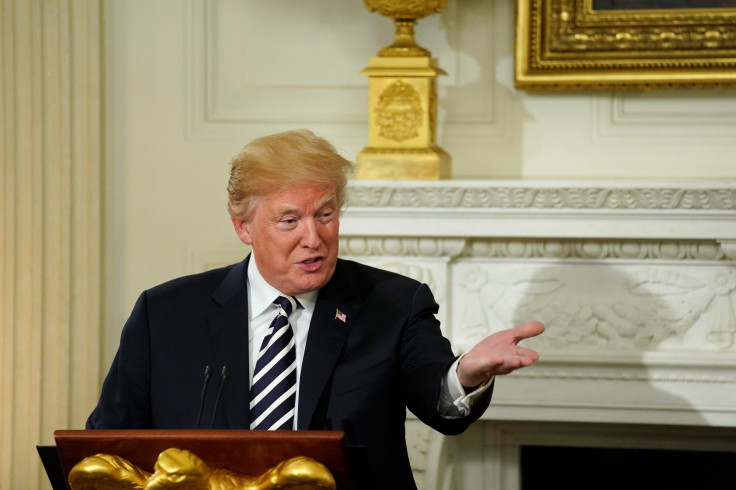White House Iftar Dinner: Major US Muslim Groups Snubbed By Trump

President Donald Trump held his first iftar dinner Wednesday night in the White House, drawing criticism from Muslim advocates in the United States for not inviting prominent Muslim organizations to the dinner.
Before the event, the White House released a statement saying: "Iftar is one of the religious observances of Ramadan and is often done as a community, with people gathering to break their fast together."
The White House, however, refused to release the guest list, citing protocol issues but stated at least 30 to 40 members of the Washington diplomatic community were in attendance.
Chefs outside the West Wing prepping for tonight’s White House iftar. President Trump will host 30-40 guests to celebrate the Muslim holy month of Ramadan. pic.twitter.com/0uzr6A1uKw
— Vivian Salama (@vmsalama) June 6, 2018
The pool reporters identified 18 ambassadors from Jordan, Saudi Arabia, the UAE, Iraq, Egypt, and more, reported BuzzFeed News.
Council for Islamic-American Relations, Muslim Advocates, and the Muslim Public Affairs Council were snubbed by the White House this year by not extending an invitation to them.
In a manner of protest, Muslim American advocates and Council for Islamic-American Relations (CAIR) along with a number of other organizations held an iftar dinner outside the White House titled, “NOT Trump’s Iftar.”
“It is difficult to view the event as part of an outreach campaign to the Muslim community,” CAIR spokesperson Ibrahim Hooper said claiming he did not know of any Muslim activist or leader invited for the dinner.
Omid Safi, director of Duke University's Islamic Studies Center said, “The Trump White House ‘iftar’ is a sham, a charade, and a mockery of both the sanctity of Ramadan and the ideals of a democratic government of the people by the people for the people.”
“Our beautiful faith of Islam is not a photo opportunity to be paraded around in his virtual reality of a presidency. To invite only foreign Muslim politicians further perpetuates the myth that Islam is somehow inherently foreign to the mosaic of American society,” Safi added.
"If the White House is interested in inviting foreign government leaders from largely corrupt, Muslim-majority countries that exhibit inequitable and unjust policies upon their own populations, that seems to be in line with the tenor of the current U.S. Administration," Colin Christopher, The Islamic Society of North America’s interfaith director, told Huffington Post.
Hillary Clinton held the first White House iftar dinner in 1996, but Trump broke the tradition by declining to hold one last year, sparking backlash from the Muslim community.
Even before he entered the White House, Trump has had tense relation with American Muslim communities, especially after he called for a complete shutdown of Muslims entering the U.S. when he was a candidate.
"There's a lot of backlash within the Muslim community to work with the White House after the Muslim ban, and comments made by President Trump have offended people in the community," said Saba Ahmed, leader of the Republican Muslim Coalition, calling the iftar "a good start,” reported ABC News.
“Ramadan mubarak,” Trump said in a conciliatory tone during the dinner Wednesday.
“We honor a sacred tradition of one of the world’s great religions,” he added, recalling his trip to Saudi Arabia as “one of the most fabulous times” of his life.
© Copyright IBTimes 2024. All rights reserved.





















